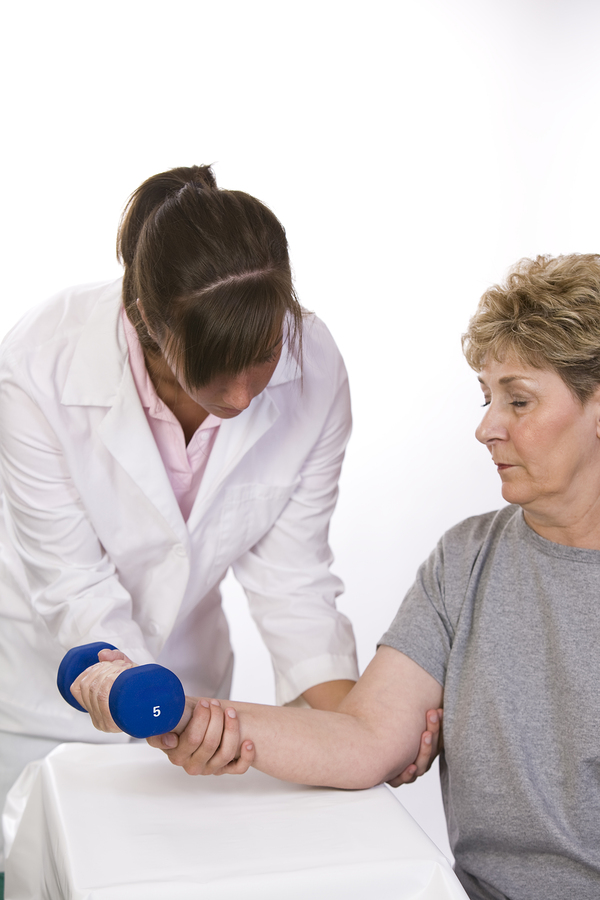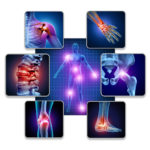By David Blyweiss, M.D., Advanced Natural Wellness
February 14, 2020
I thought I was having a stroke on August 2nd, 1990…
It’s a day I’ll never forget. I had just finished with patients and it was lunchtime. I took a drink of my iced tea and I felt the cool liquid dribble out the side of my mouth and down onto my shirt.
“That’s funny,” I thought. Then, I took another sip and – again – couldn’t keep the liquid inside my mouth. Then, it dawned on me…
I might be having a stroke!
So, I did a very simple test and had my fears instantly calmed. It wasn’t a stroke. It turns out I was having a nerve issue in my face known as Bell’s Palsy, which cleared up within a few weeks.
Now, there’s an important lesson to be learned here. I’m a doctor, so I knew what test to do. But most regular folks never think they’re having a stroke.
MD Exposes the Hidden Danger to Your Eyes

When your eyesight starts to fail, it's a real problem. Suddenly you can't go to the grocery store... you can't get to the doctor if you have an emergency... you can't meet your friends for dinner…
Your "regular" doctor doesn't have time to keep up with the latest research. And the same goes for eye doctors. They go to school to learn how to fit you for glasses and contacts, but have no way of preventing the damage and loss of eyesight that threatens your freedom and independence.
Let me show you something that explains a LOT about how your eyes work.
In my FREE Special Report, I'll show you a HUGE, untapped resource for your eyes that safely and naturally restores clear, effortless eyesight.
Click here to get started...
It’s something that strikes out of the blue and hits you like a ton of bricks. And once it does, the results can be devastating.
Without immediate medical treatment the long-term damage caused by a stroke can be horrific. You could end up paralyzed on one side of your body. Speech and communication may become literally impossible. Memory, mood and behavior issues can all become problems.
In other words, a stroke can ruin your life.
However, if you get immediate medical attention, it’s entirely possible that you could make a full recovery and go on to live a long, active and healthy life.
Now, here’s the thing…
About two out of three people in the throes of a stroke don’t seek immediate medical attention. In fact, more than half of people who experience a stroke don’t even realize they’re having one.
And any delay in treatment gives the stroke more time to wreak havoc on your brain…
Is it REALLY a Stroke?
Public awareness campaigns have made it easier to recognize major symptoms of a stroke – and encourage urgency – with the FAST acronym. This stands for:
Facial drooping
The World's Quickest Solution for Ending Prostate and Urinary Misery
This has recently been revealed to be one of the only real breakthroughs in prostate health.
The seeds of a strange fruit (sometimes called "Chinese Apples") hold powerful phytonutrients that are a revolution in prostate health.
In fact, UCLA and Veterans Administration research have now proved this to be true.
Not only that, but it may be the worlds quickest solution for ending prostate misery.
Simply stated, these phytonutrients represent a huge step beyond beta sitosterol, saw palmetto, and other phytosterols alone.
Simply click HERE if you want to have fast prostate relief...restful, uninterrupted sleep...no more constant "urges to go"...enhanced virility...and optimal prostate support for life.
Arm weakness
Speech difficulty
Time to call 911
So why are people missing these symptoms… and not getting immediate treatment when they do recognize them?
I think part of the reason is that we all think that it won’t happen to us. I’ll bet every almost everyone who has a stroke thinks this, even when they realize it IS happening to them. So we rationalize.
Your first thought might be to wait awhile to see if the symptoms disappear on their own. Your second thought might be how stupid you’ll feel if you call an ambulance, then find out it’s not really a stroke.
This makes it easy to dial up a friend or family member to come over and check on you… or give your doctor’s office a call for advice or an appointment.
None of these responses are acceptable.
If You’re Not Sure, Call 911
In addition to the FAST acronym, other symptoms of stroke may (or may not) include dizziness, confusion, severe headache, blurred vision and loss of coordination.
I’ve had a few elderly patients in my office have a leg give out mid-step. They collapsed to the ground unable to talk and I immediately knew they were having a stroke.
If there is any chance at all that you’re experiencing a stroke… if an arm goes weak, if you’re dizzy, confused or having trouble speaking or understanding words… DO NOT wait to see if the symptoms disappear.
DO NOT call your doctor to ask what to do. And DO NOT call a family member or neighbor to come over and check on you.
DO pick up the phone immediately and dial 911. The quality – and length – of your remaining life could well depend on that quick response time.
I mentioned a simple test you can also try…
I used this test back on that August day to quickly tell if things were okay. All you need to do is lift both of your arms up over your head and stick out your tongue.
If your arms don’t lift equally or if you can’t stick your tongue straight out, you’re having a stroke and it’s time to call 911. Remember, if you have any trouble whatsoever – any trouble at all – call 911 and let the ER doctors figure it out.
SOURCES:
Hurst K, et al. Delays in the presentation to stroke services of patients with transient ischaemic attack and minor stroke. Br J Surg. Online ahead of print. Aug 2016.
Mackintosh JE, et al. Why People Do, or Do Not, Immediately Contact Emergency Medical Services following the Onset of Acute Stroke: Qualitative Interview Study. PLoS One. 2012; 7(10): e46124.







